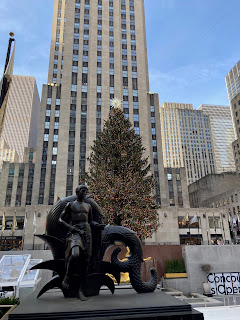According to the New York Times email I received this morning, nostalgia is now a thing. “As Gen Xers and many millennials approach or move through middle age, the entertainment industry has become determined to soothe their passage with a ceaseless and sentimental remembrance of things past.”
It also mentions the Super Bowl halftime show (which I didn’t watch) because Dr. Dre, Snoop Dogg, Eminem, Mary J. Blige and 50 Cent are now considered nostalgia acts. It goes on to say that, “This fall, Avril Lavigne, Bright Eyes and My Chemical Romance will perform at the early-aughts emo-and-rock festival When We Were Young.”
My reaction to all this is twofold. First off, I was nostalgic when nostalgia wasn’t cool.
Second of all, boo fucking hoo! Gen Xers and millennials are crying into their avocado toast because they’re approaching or moving through middle age? Wait til you get to my my age! Boomers are invisible!
I’ve been watching Seinfeld reruns since they went on the air (after having watched the original series—because I’m that old). I’ve gotten to the point where I can recite pretty much any Seinfeld episode verbatim.
“Why?” you ask.
Apart from the fact that it’s a brilliant sitcom, there’s the undeniable nostalgia factor. The characters on Seinfeld (particularly Kramer) could never exist in today’s New York City. They could never afford it! All the interesting kinds of people who made New York a place people would want to live in (or visit) in the first place have either died or left!
As for music, I basically stopped buying music after the 1980s.
Last week I went to see Howard Jones in concert. Let me tell you something. You haven’t lived until you’ve seen an audience of 60-somethings going, “Ooh ooh ooh” to “New Song”!
Even more ’80s bands will be touring this summer (including Jones): Tears for Fears, Devo. Madness was supposed to be doing a 40th anniversary tour, but their New York dates were canceled. (Not enough boomers?)
I even had an idea for a movie script. I was going to call it Every Band in the ’80s. (Agents, if you’re reading this, I’m happy to “take a meeting”!) The plot would center around a character whose goal was to see every band that came out in the ’80s before either he or they died. Unfortunately, many ’80s music icons already have: Prince, George Michael, Whitney Houston. Yikes! It’s depressing! It would probably have to be rewritten as Every Band in the ’90s! Oh, well…
I’ve been known to go into what I call a “nostalgia K-hole” where one memory triggers another and, thanks to the Internet, I can spend my entire evening playing “Whatever happened to?” (Speaking of which, that cute little boy from The Hours has grown up to be a hot young man! But I digress.)
I even wrote a novella called Nostalgia, a sequel, of sorts, to my book New York Trilogy, which was about my coming of age in the ’80s. (Nostalgia-in-the-making, if you will.) And that was 30 years ago!
So when it comes to nostalgia, remember: you heard it here first! (Or second, if you get the New York Times email.)





